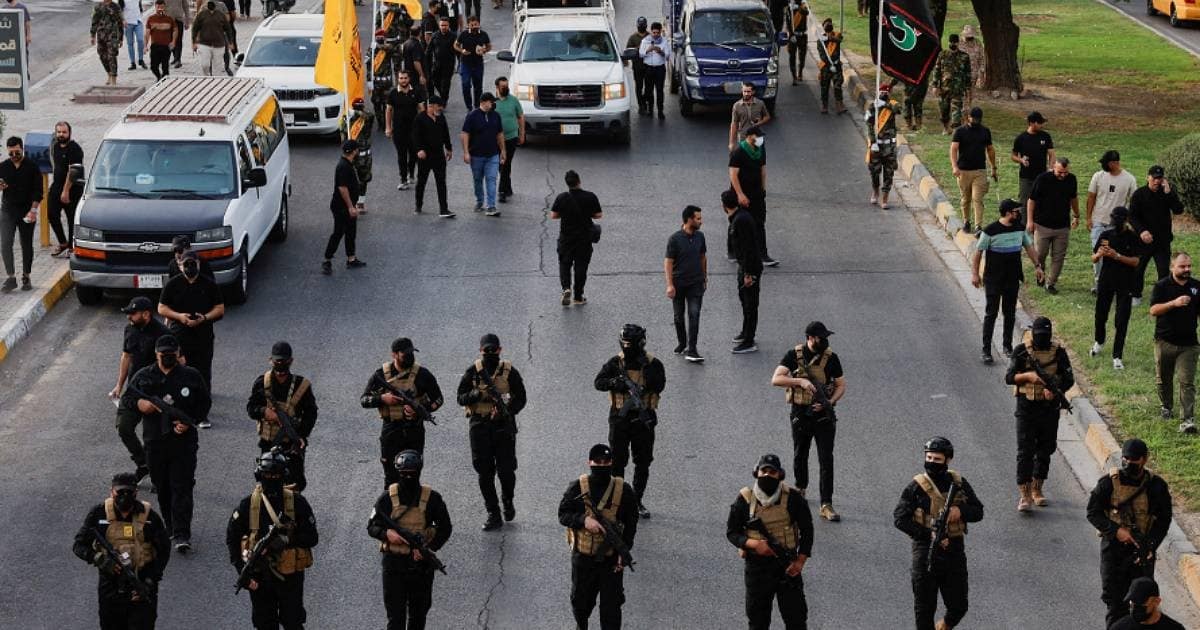The political landscape in Iraq has always been complex with various factions vying for power. Among them the Iran-backed Iraqi militias have played a significant role in shaping the country’s security and politics. Recent reports suggest these groups might be willing to disarm to avoid escalating tensions with the United States especially under a potential Trump administration. BestPrimeNews
Who Are the Iran-Backed Iraqi Militias?
The Iran-backed Iraqi militias are armed groups that emerged after the 2003 U.S. invasion of Iraq. Many of these factions were initially formed to fight against American forces but later turned their focus to battling ISIS. Over time they became a powerful political and military force with strong ties to Tehran.
Groups like Kataib Hezbollah Asaib Ahl al-Haq and the Badr Organization have received training funding and weapons from Iran. These Iran-backed Iraqi militias operate both as part of Iraq’s Popular Mobilization Forces (PMF) and as independent armed factions. Their influence extends beyond the battlefield as they hold considerable sway in Iraqi politics.
Why Are They Considering Disarmament Now?
The Iran-backed Iraqi militias have long been a point of contention between Baghdad Washington and Tehran. The U.S. has repeatedly targeted these groups with airstrikes accusing them of attacking American troops and destabilizing the region.
With the possibility of Donald Trump returning to the White House these militias face a tough choice. Trump’s previous administration took a hardline approach against Iran and its proxies. His targeted strike that killed Qasem Soleimani and Abu Mahdi al-Muhandis in 2020 showed he was willing to act decisively against threats.
Fearing another wave of U.S. military action the Iran-backed Iraqi militias may be looking to de-escalate. Some reports indicate that certain factions are open to disbanding or integrating fully into Iraq’s security forces to avoid direct confrontation.
The Impact on Iraq’s Stability
If the Iran-backed Iraqi militias indeed disarm it could significantly alter Iraq’s security dynamics. On one hand it might reduce tensions with the U.S. and pave the way for smoother diplomatic relations. On the other hand it could create a power vacuum that other armed groups might exploit.
Iraq’s government has struggled to maintain control over these factions. While some militias have officially joined state security structures others operate independently. A full disarmament deal would require strong enforcement mechanisms something Baghdad has found challenging in the past.
Regional Reactions and Iran’s Stance
Iran has heavily invested in these militias as part of its broader strategy to extend influence across the Middle East. If the Iran-backed Iraqi militias disarm Tehran could lose a critical lever of power in Iraq.
However Iran might also see tactical benefits in reducing tensions. With ongoing protests and economic struggles at home Tehran may prefer avoiding another major conflict with the U.S. A temporary de-escalation could allow Iran to regroup and strengthen its position elsewhere.
What This Means for U.S.-Iraq Relations
The U.S. has long pressured Iraq to curb the influence of Iran-backed Iraqi militias. If these groups voluntarily disarm it could lead to improved ties between Washington and Baghdad. However skepticism remains as past attempts to rein in these factions have seen limited success.
A Trump administration would likely welcome such a move but would also demand verifiable steps to ensure these militias do not simply regroup under different names. The U.S. will want guarantees that Iraq can prevent future attacks on American personnel and interests.
Potential Challenges Ahead
Disarmament is easier said than done. Many Iran-backed Iraqi militias have deep roots in local communities and provide social services alongside their military activities. Simply disbanding them could lead to unrest especially if their members are not properly integrated into civilian life or state security forces.
Additionally hardline factions within these groups may resist disarmament. Splinter groups could emerge continuing armed activities under a different banner. This would complicate efforts to bring lasting stability to Iraq.
Conclusion
The possibility of Iran-backed Iraqi militias disarming marks a critical moment for Iraq’s future. While the move could ease tensions with the U.S. it also carries risks for Iraq’s internal security. The coming months will reveal whether these factions are truly ready to lay down their arms or if this is merely a tactical pause in a long-standing conflict.
For now all eyes are on how Washington Tehran and Baghdad navigate this delicate situation. One thing is clear the decisions made today will shape the balance of power in Iraq for years to come. BestPrimeNews



